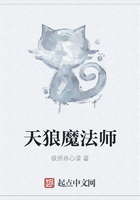Inwardly Jim felt hurt, but he had felt hurt so long from the same cause that the sensation had become chronic, and was borne with a gentle patience.
Moreover, there was something which troubled him more and was the reason for his contemplated call on his friend. He evened the coals on the fire with great care, and replenished from the pail in the ice-box the cats' saucers. There was a circle of clean white saucers around the stove. Jim owned many cats; counting the kittens, there were probably over twenty. Mrs. Adkins counted them in the sixties.
"Those sixty-seven cats," she said.
Jim often gave away cats when he was confident of securing good homes, but supply exceeded the demand. Now and then tragedies took place in that woodshed. Susan Adkins came bravely to the front upon these occasions. Quite convinced was Susan Adkins that she had a good home, and it behooved her to keep it, and she did not in the least object to drowning, now and then, a few very young kittens. She did this with neatness and despatch while Jim walked to the store on an errand and was supposed to know nothing about it. There was simply not enough room in his woodshed for the accumulation of cats, although his heart could have held all.
That day, as he poured out the milk, cats of all ages and sizes and colors purred in a softly padding multitude around his feet, and he regarded them with love. There were tiger cats, Maltese cats, black-and-white cats, black cats and white cats, tommies and females, and his heart leaped to meet the plead-ing mews of all. The saucers were surrounded.
Little pink tongues lapped. "Pretty pussy! pretty pussy!" cooed Jim, addressing them in general. He put on his overcoat and hat, which he kept on a peg behind the door. Jim had an arm-chair in the wood-shed. He always sat there when he smoked; Susan Adkins demurred at his smoking in the house, which she kept so nice, and Jim did not dream of rebellion.
He never questioned the right of a woman to bar tobacco smoke from a house. Before leaving he refilled some of the saucers. He was not sure that all of the cats were there; some might be afield, hunting, and he wished them to find refreshment when they returned. He stroked the splendid striped back of a great tiger tommy which filled his arm-chair. This cat was his special pet. He fastened the outer shed door with a bit of rope in order that it might not blow entirely open, and yet allow his feline friends to pass, should they choose. Then he went out.
The day was clear, with a sharp breath of frost.
The fields gleamed with frost, offering to the eye a fine shimmer as of diamond-dust under the brilliant blue sky, overspread in places with a dapple of little white clouds.
"White frost and mackerel sky; going to be falling weather," Jim said, aloud, as he went out of the yard, crunching the crisp grass under heel.
Susan Adkins at a window saw his lips moving.
His talking to himself made her nervous, although it did not render her distrustful of his sanity. It was fortunate that Susan had not told Jim that she disliked his habit. In that case he would have deprived himself of that slight solace; he would not have dreamed of opposing Susan's wishes. Jim had a great pity for the nervous whims, as he regarded them, of women -- a pity so intense and tender that it verged on respect and veneration. He passed his nieces' house on the way to the minister's, and both were looking out of windows and saw his lips moving.
"There he goes, talking to himself like a crazy loon," said Amanda.
Alma nodded.
Jim went on, blissfully unconscious. He talked in a quiet monotone; only now and then his voice rose; only now and then there were accompanying gestures. Jim had a straight mile down the broad village street to walk before he reached the church and the parsonage beside it.
Jim and the minister had been friends since boy-hood. They were graduates and classmates of the same college. Jim had had unusual educational ad-vantages for a man coming from a ****** family.
The front door of the parsonage flew open when Jim entered the gate, and the minister stood there smiling. He was a tall, thin man with a wide mouth, which either smiled charmingly or was set with severity. He was as brown and dry as a wayside weed which winter had subdued as to bloom but could not entirely prostrate with all its icy storms and compelling blasts. Jim, advancing eagerly tow-ard the warm welcome in the door, was a small man, and bent at that, but he had a handsome old face, with the rose of youth on the cheeks and the light of youth in the blue eyes, and the quick changes of youth, before emotions, about the mouth.
"Hullo, Jim!" cried Dr. Edward Hayward. Hay-ward, for a doctor of divinity, was considered some-what lacking in dignity at times; still, he was Dr.
Hayward, and the failing was condoned. More-over, he was a Hayward, and the Haywards had been, from the memory of the oldest inhabitant, the great people of the village. Dr. Hayward's house was presided over by his widowed cousin, a lady of enough dignity to make up for any lack of it in the minister. There were three servants, besides the old butler who had been Hayward's attendant when he had been a young man in college. Village people were proud of their minister, with his degree and what they considered an imposing household retinue.
Hayward led, and Jim followed, to the least pre-tentious room in the house -- not the study proper, which was lofty, book-lined, and leather-furnished, curtained with broad sweeps of crimson damask, but a little shabby place back of it, accessible by a nar-row door. The little room was lined with shelves;they held few books, but a collection of queer and dusty things -- strange weapons, minerals, odds and ends -- which the minister loved and with which his lady cousin never interfered.















